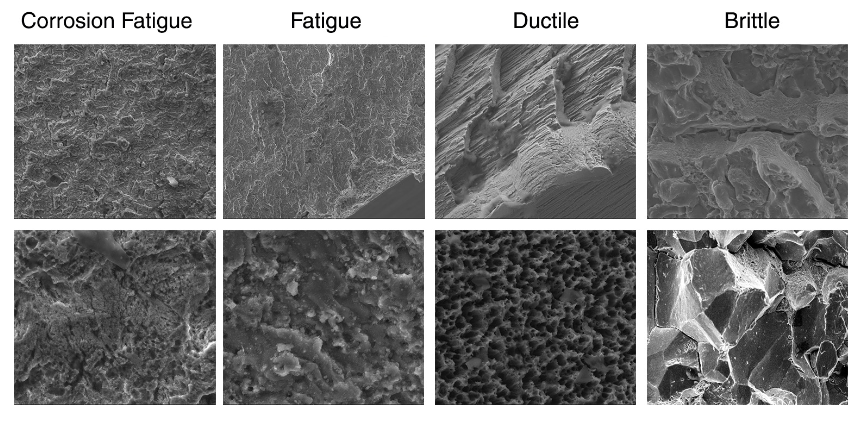Deep Learning for fractographic classification in metallic materials
Maria Ximena Bastidas Rodriguez, National University of Colombia, Colombia
Adrien Gruson, McGill University, Canada
Luisa F. Polania, Target Corporation, USA
Flavio Prieto Ortiz, National University of Colombia, Colombia
In Engineering Failure Analysis, Volume 113, 2020.

Abstract
Periodic fractographic analysis of fracture surfaces helps to improve the performance of mechanical pieces. It avoids economical and security problems in many industries, such as the automotive industry. Classifying a fracture into a failure mode is necessary to determine the causes that generated the fracture in the first place. Experts in fracture classification of metallic materials usually use visual evidence of textures and surface marks to determine the type of fracture. In this paper, two datasets for failure modes are employed. The first one is a real-scale fracture dataset. The second dataset consists of images obtained with scanning electron microscopy (SEM) at different scales. Fracture classification performance on these datasets was evaluated using traditional convolutional neural networks for object and texture analysis. Furthermore, modifications to a deep learning architecture that extracts textural features by using the adaptive wavelet transform at its core are described. Experimental results show that deep learning approaches are successful at extracting textural features for mechanical failure classification.
Downloads
Publication
- Paper (author's version), PDF
- Publisher's official version – external link, may require a subscription
Cite
Maria Ximena Bastidas Rodriguez, Adrien Gruson, Luisa F. Polania, and Flavio Prieto Ortiz . Deep Learning For Fractographic Classification In Metallic Materials, Engineering Failure Analysis, Volume 113, 2020.@article{bastidas2020deep, title={Deep learning for fractographic classification in metallic materials}, author={Bastidas-Rodriguez, Mar{\'\i}a X and Polan{\'\i}a, Luisa F and Gruson, Adrien and Prieto-Ortiz, Flavio}, journal={Engineering Failure Analysis}, year={2020}, publisher={Elsevier}, doi={10.1016/j.engfailanal.2020.104532} }Copy to clipboard